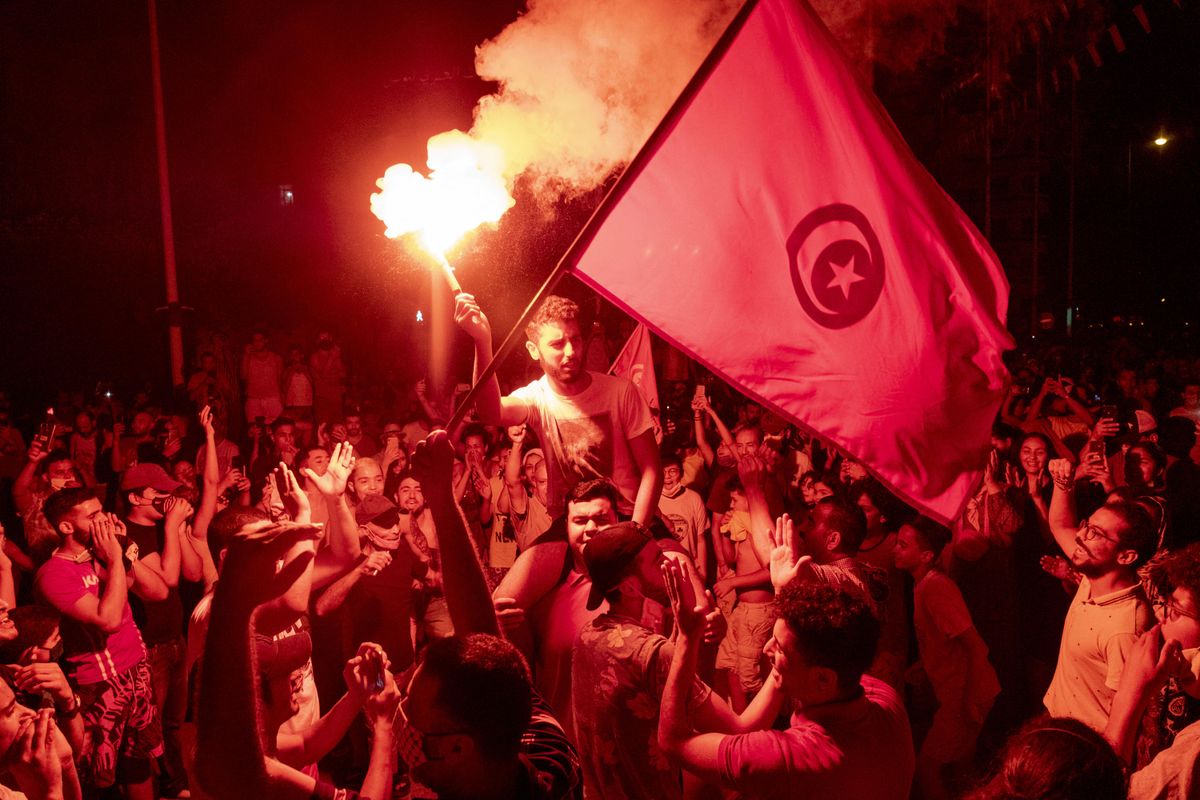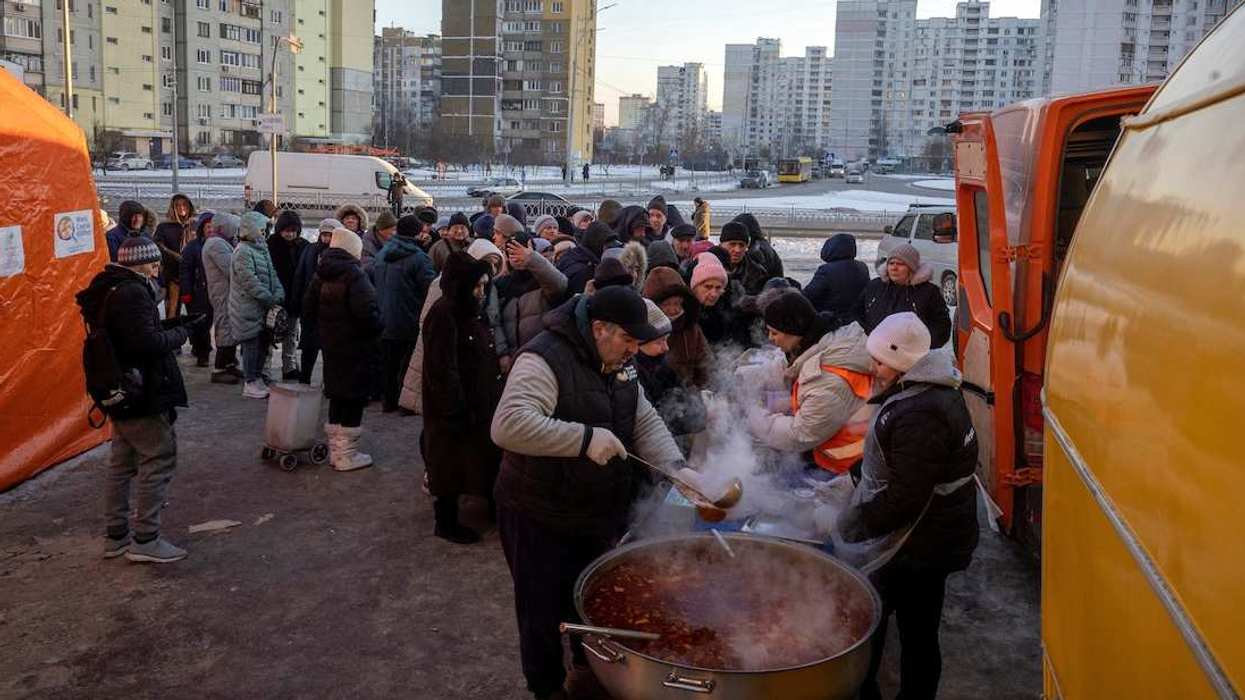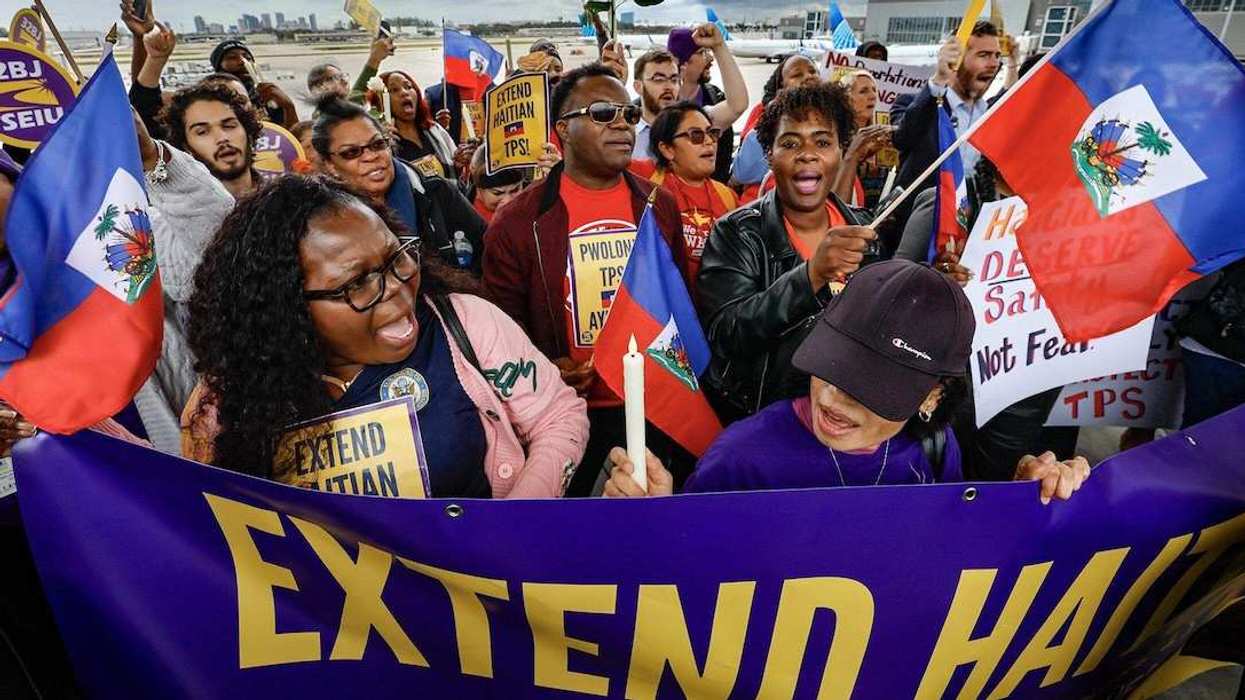Tunisia, the only country that emerged a democracy from the Arab Spring, is now in the middle of its worst political crisis since it got rid of former autocrat Zine El Abidine Ben Ali over a decade ago.
On Sunday, the 64th anniversary of the country's independence from France, President Kais Saied responded to widespread protests over the ailing economy and COVID by firing embattled Prime Minister Hichem Mechichi and suspending parliament for 30 days. Troops have surrounded the legislature, where rival crowds faced off on Monday, with one side chanting in support of the move and the other denouncing it as a coup.
How did we get here, do we even know who's really in charge, and what might come next?
Tunisians are fed up. Over the past year, Tunisians have repeatedly taken to the streets in the largest numbers in a decade to decry the stagnant economy, rising inequality, inadequate public services, and dwindling job opportunities for young people (even before the pandemic, youth unemployment was already at 36 percent, the highest rate in North Africa.) Young Tunisians led the protests, often battling trigger-happy police.
COVID, of course, made everything worse. It crushed Tunisia's labor-intensive tourism industry, and forced thousands of Tunisian migrants to hop on boats across the Mediterranean headed for Europe via Italy, which saw a five-fold increase in arrivals in 2020. Right now, COVID infections rates are soaring while barely 7 percent of the population has been fully vaccinated.
More broadly, the people feel politicians remain as corrupt as they were under Ben Ali, and have failed to deliver on the promise of democracy to provide a better life for ordinary Tunisians. Trust in the system has plunged after highly fragmented parliaments have created a series of fragile coalition governments that slow-walk meaningful reforms, leaving the country in economic stagnation and a permanent political stalemate.
Constitutional crisis. Saied's sudden move has created a constitutional crisis because it's unclear he had the authority to dissolve the government on his own.
A former constitutional law professor who was elected as an independent in late 2019 to root out endemic corruption, the president says he's within his constitutional powers to govern by decree until he appoints a new PM. It's an unusually out-of-character performance by Saied, who styles himself as a moderate statesman and whom many Tunisians jokingly refer to as "Robocop" for putting audiences to sleep with his monotone delivery during speeches.
However, the moderate Islamist Ennadha party, as the largest force in parliament and the coalition government, insists it must nominate the next prime minister. (Ennadha — which was banned by Ben Ali for being inspired by Egypt's Muslim Brotherhood — has always been part of democratic coalition governments and won the 2019 parliamentary election, but fell short of an outright majority.)
The problem is that the separation of powers under Tunisia's mixed presidential-parliamentary system is somewhat confusing: just weeks ago, Saied and Mechichi were squabbling about who controls internal security amid the former's broader plans to reform the constitution. Interestingly, the constitution says a special court should resolve those disputes… but (surprise!) the executive and legislative powers still haven't agreed on how to set it up.
Next moves. Whether you think it's a power grab or a necessary intervention to address a crisis, Saied's action has captured the zeitgeist by moving against a political establishment that most Tunisians have long resented. However, it's hard to imagine how he will be able to govern once he restores parliament because he doesn't have a party of his own. As president, he controls the military, but the reformist Robocop would rather make Tunisian democracy work than become dictator of a police state.
At a minimum, the situation creates more urgency for Tunisia's politicians to fix a system that — imperfect as it may be — gives the people a lot more of a say than in any other country that experienced the Arab Spring.


















